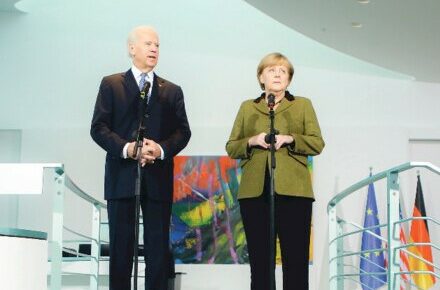
Once staunch advocates of international cooperation, political elites are increasingly divided over the merits of global governance. Populist leaders attack international organizations for undermining national democracy, while mainstream politicians defend their importance for solving transboundary problems. In our recent book, we have explored whether, when, and why elite communication shapes the popular legitimacy of international organizations (Dellmuth and Tallberg 2023).
Since World War II, governments have created a dense network of multilateral institutions, such as the African Union (AU), European Union (EU), United Nations (UN), and the World Health Organization (WHO). Today, international organizations enjoy extensive power and have a frontline role in combating transboundary problems. However, with growing expectations on global governance to deliver, global governance institutions have also become increasingly contested (Zürn 2018).
Rising powers, such as China and Russia, are challenging the Western liberal order from the outside. Anti-globalist populists, such as Donald Trump and Marine Le Pen, are mobilizing against multilateral cooperation from the inside, in the name of “regaining control.” Political parties mobilize electoral support for their stances on globalization. Another type of contestation comes from civil society actors, such as Fridays for Future and Global Justice Now, which demand a more ambitious and just system. How global governance can become more legitimate or trustworthy is a key challenge confronting contemporary societies (Norris 2022).
In our book, we find that communication by elites – be they domestic or global, public or private – shapes public opinion toward international organizations. On the basis of rich evidence from survey experiments in multiple western and non-western states and in relation to multiple international organizations, we show that communication by politicians, government bureaucrats, civil society representatives, and international officials shapes whether citizens consider global governance legitimate.
The effects of elite communication on public opinion depend on three factors: the elite, the message, and the citizen. Elites are more influential in shaping people’s legitimacy perceptions when perceived as credible. Messages are more effective in shaping legitimacy beliefs when conveying negative rather than positive information about IOs. Finally, citizens are more responsive to elite communication when they are ideologically closer to the elites issuing the messages.
Taken together, the book makes three distinct contributions to existing knowledge. First, we develop a novel theory of the effects of elite communication in global governance, drawing from cognitive psychology, comparative politics, and International Relations. Inspired by research on heuristic opinion formation, it theorizes conditions for influence associated with each core component of the communicative situation – the elite, the message, and the citizen.
Second, we offer the most comprehensive empirical examination to date of the effects of elite communication in global governance. While research in American and comparative politics is rich in analyses of elite influence, this literature remains exclusively focused on
the domestic setting. Only a handful of studies have examined the effects of elite communication in the international setting, mainly with a focus on the European Union (EU).
Third, we push the methodological frontier in research on the legitimacy of global governance. While the existing literature on public opinion toward global governance primarily relies on data from public opinion polls, this book makes use of experimental methods for causal inference, which are particularly well suited for establishing effects of elite communication. Experiments allow us to bypass the classic problem of establishing whether elites influence citizens or the other way around, and to identify the effects of elite communication under different conditions.
The book yields three messages for practitioners in global governance.
First, our findings suggest why the advocates of global governance so far have come up short against its critics. Negative communication about international organizations is considerably more common than positive communication. And citizens are often not convinced by international organizations’ own attempts to talk up their legitimacy. Advocates of global governance, eager to push back against anti-globalization elites, therefore need to step up their efforts.
Second, global governance advocates need to work through the channels that are most credible in the eyes of citizens. Mobilizing civil society and national political elites to speak up on behalf of international organizations is more effective than having these institutions trumpet their own credentials.
Third, advocates of global governance should work to reform international organizations in ways that yield greater legitimacy in the eyes of citizens. While institutional reforms involve significant hurdles, steps to enhance transparency, participation, efficiency, problem-solving, impartiality, and fair distribution will not only improve the inherent qualities of global governance but also have positive knock-on effects on its popular legitimacy.
Latest Comments
Have your say!